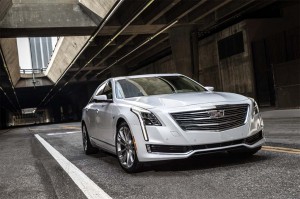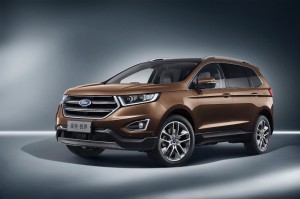General Motors and its joint ventures in China delivered 367,712 vehicles in January, posting a year-over-year increase of 14.5%, but Ford Motor Co. suffered a reversal as sales dropped by 1% to 75,990 vehicles.
Nissan sales rose 13.1%. while Toyota Motor Co. sales rose 12.4%. Toyota Motor Corp aims to sell 1.4 million vehicles in China in 2018, nearly 9% more than it sold last year. Ford’s top executive in China abruptly resigned last month, citing personal reasons.
GM, which is preparing to introduce 15 new or refreshed models in China this year, saw Cadillac set a new monthly sales record in what is now the brand’s largest market.
Overall, auto sales growth rebounded during January, according to the China Association of Automobile Manufacturers. Sales of sedans, SUVs and minivans rose 10.7% from a year earlier to 2.4 million, recovering from December’s 0.7% drop, the association reported. Total vehicle sales including trucks and buses rose 13.6% to 2.7 million.
(Nissan spending $9.5 billion to grow China sales. Click Here for the story.)
Sales of SUVs, which make up nearly half of all purchases, rose 22.9% compared with January 2017 to just more than 1 million units.
Weak demand in China, where sales grew only 1.4% as a sales tax cut ended, was a setback for global automakers looking to China to drive revenue at a time when Beijing is pressing the industry to pour resources into developing electric vehicles.
Automakers are forecasting this year’s total market growth at 3 to 4%, a fraction of earlier double-digit rates. Competition is also intensifying as global and Chinese automakers pour billions of dollars into ramping up production of electric vehicles under pressure from Beijing to meet official minimum sales targets that take effect in 2020.
(Click Here for details about China meager 1.4% sales increase in 2017.)
January sales of electric and hybrid vehicles rose 430%, though from last year’s low base, to 38,470.
“Despite being in a period of policy uncertainty, the trend of sales of new energy vehicles driven by the market still is relatively strong,” said the CAAM general secretary, Cui Dongshu, in a statement.
(To see more about China seeking to add AI to 50% of vehicles by 2020, Click Here.)
“The development of new energy vehicles still faces many problems,” said Cui. “The energy density of batteries increases very slowly, which has led to low range that cannot satisfy customer demand.”


